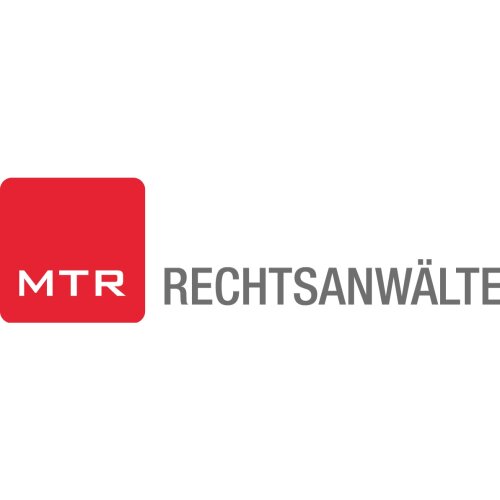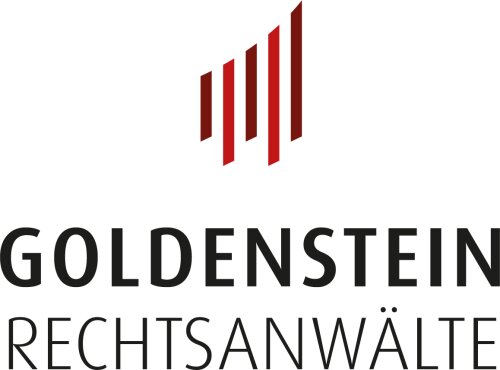Best Oil, Gas & Energy Lawyers in Berlin
Share your needs with us, get contacted by law firms.
Free. Takes 2 min.
List of the best lawyers in Berlin, Germany
About Oil, Gas & Energy Law in Berlin, Germany
The Oil, Gas & Energy sector in Berlin, Germany, is a critical part of the national economy, playing a significant role in powering industries, homes, and transportation. The legal landscape surrounding this sector is built to address the complexities of energy production, distribution, and consumption, as well as environmental and safety standards. With Germany's strong focus on renewable energy as part of the Energiewende (energy transition) policy, the energy law also encompasses significant regulations surrounding renewable energy sources, efficiency strategies, and greenhouse gas emissions reduction. Legal frameworks are crucial to ensure compliance with both national objectives and European Union regulations.
Why You May Need a Lawyer
There are various scenarios where individuals and businesses may require legal counsel in the Oil, Gas & Energy sector:
- Regulatory Compliance: Navigating compliance with complex local and EU energy regulations.
- Contracts: Drafting, reviewing, or disputing contracts related to energy supply, infrastructure, or investments.
- Litigation: Representing clients in disputes over environmental impact, safety violations, or contract breaches.
- Mergers and Acquisitions: Legal assistance during private investments or mergers within the energy sector.
- Land Use and Permitting: Obtaining necessary permissions for energy infrastructure development projects.
- Taxation and Incentives: Advising on tax laws related to energy production and governmental incentives for renewable energy projects.
- Environmental Impact Assessments: Ensuring that environmental analyses meet legal standards.
Local Laws Overview
The legal framework for Oil, Gas & Energy in Berlin is influenced by both national legislation and European Union directives. Some of the key laws include:
- Renewable Energy Sources Act (EEG): Establishes the legal framework for promoting renewable energy in Germany.
- Federal Immission Control Act (BImSchG): Addresses environmental protection standards for emissions from industrial facilities.
- Energy Industry Act (EnWG): Governs the production, transmission, and distribution of energy, focusing on efficiency and fair competition.
- Energy Saving Ordinance (EnEV): Mandates energy-saving measures, particularly in building construction and retrofitting.
- European Union Climate Policies: EU-wide directives and regulations that impact national energy policies and standards.
Frequently Asked Questions
What is Energiewende?
Energiewende refers to Germany's initiative to transition to a more sustainable energy system, reducing reliance on nuclear and fossil fuels while increasing the use of renewable energy.
Do I need a permit to install solar panels in Berlin?
In most cases, small-scale solar panel installations do not require a permit, but it's vital to comply with building regulations and local bylaws, which a lawyer can help clarify.
What kinds of energy contracts might I deal with?
Energy contracts can include supply agreements, power purchase agreements, and contracts for infrastructure development, each with specific legal requirements and risks.
How can I ensure my business is compliant with energy regulations?
Consulting with a lawyer experienced in energy law can help identify applicable regulations, assist in compliance strategies, and handle regulatory updates and audits.
Can I challenge an energy bill from my supplier?
Yes, if you believe there is an error or if the billing does not comply with contract terms, you can seek legal advice to dispute the charges formally.
How are disputes in the energy sector typically resolved?
Disputes may be resolved through negotiation, mediation, arbitration, or court litigation, depending on the nature of the conflict and the agreements between the parties.
What incentives are available for businesses using renewable energy?
Incentives can include tax benefits, grants, and subsidies for renewable energy projects, subject to meeting certain criteria outlined in governmental policies.
What are the environmental obligations for oil and gas companies in Berlin?
Companies must adhere to stringent environmental standards and conduct impact assessments conforming to both national and EU environmental protection laws.
What should I consider when purchasing an existing energy facility?
Consideration should be given to due diligence on existing permits, environmental liabilities, zoning laws, and the current state of compliance with all regulatory standards.
What role does the European Union play in German energy law?
EU directives and regulations significantly shape national energy policies, mandating various environmental, competition, and safety standards that member states need to enforce.
Additional Resources
For further information and support, consider consulting the following resources:
- Federal Ministry for Economic Affairs and Energy (BMWi): Provides information on energy policies and regulations.
- German Energy Agency (dena): Offers guidance on energy transition and efficiency strategies.
- Federal Network Agency (Bundesnetzagentur): Regulatory authority for telecommunications, energy, rail, post, and electricity grid operations.
- European Energy Agency (EEA): Provides insights and data on energy issues within the EU.
- Local Legal Libraries: For access to up-to-date legal texts and case studies on energy law.
Next Steps
If you require legal assistance in the Oil, Gas & Energy sector, consider taking the following steps:
- Assess Your Needs: Determine the specific legal issues you are facing or might face.
- Seek Specialized Legal Counsel: Consult with a lawyer who specializes in energy law to get tailored advice and representation.
- Prepare Documentation: Gather all relevant contracts, permits, and communications related to your legal issues.
- Schedule a Consultation: Meet with your lawyer to discuss your case and explore potential strategies for resolution or compliance.
- Follow Up: Keep in regular contact with your lawyer for updates and to ensure that all legal obligations are being managed appropriately.
Lawzana helps you find the best lawyers and law firms in Berlin through a curated and pre-screened list of qualified legal professionals. Our platform offers rankings and detailed profiles of attorneys and law firms, allowing you to compare based on practice areas, including Oil, Gas & Energy, experience, and client feedback.
Each profile includes a description of the firm's areas of practice, client reviews, team members and partners, year of establishment, spoken languages, office locations, contact information, social media presence, and any published articles or resources. Most firms on our platform speak English and are experienced in both local and international legal matters.
Get a quote from top-rated law firms in Berlin, Germany — quickly, securely, and without unnecessary hassle.
Disclaimer:
The information provided on this page is for general informational purposes only and does not constitute legal advice. While we strive to ensure the accuracy and relevance of the content, legal information may change over time, and interpretations of the law can vary. You should always consult with a qualified legal professional for advice specific to your situation.
We disclaim all liability for actions taken or not taken based on the content of this page. If you believe any information is incorrect or outdated, please contact us, and we will review and update it where appropriate.













